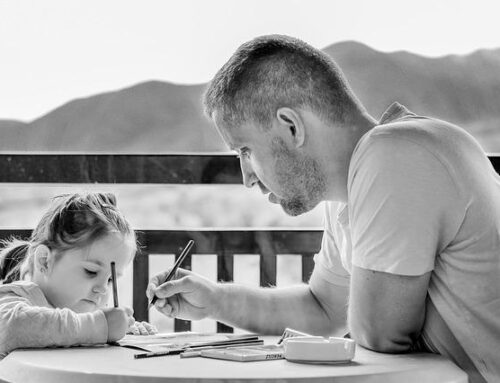As I mentioned before, the foundation of DBT is really this concept of “mindfulness,” which has really made its way to the forefront of popular psychology. Because of this, there are a lot of different definitions and views surrounding the concept. For many, the word is likely associated with the idea of meditation. And for those of us who are always on the go, and don’t frequently allow ourselves to rest, the idea of “being mindful” is equivalent to some sort of deep, profound meditation that is only achievable in a monastery somewhere in the Tibetan Alps. But I have good news! It’s actually much simpler and less theatrical than that AND you can do it from the comfort of your own home, so you can go ahead and put away your climbing gear.
Before we think of mindfulness as meditation, let’s define it more broadly. Mindfulness is simply the act of being present in the given moment. Simple right? What other moment would I be present in? Well, the thing is, as humans, our minds tend to wander. They wander off to the past and fixate on that embarrassing thing we did in third grade or even to worry about the responsibilities we have next week and how there’s just not enough time to get it all done. Let me give you a perfect example that I am just as guilty of as anyone else. Have you ever gotten off of work, walked to your car, turn the key, and before you know it you’re pulling into your driveway? Somehow you drove the entire commute home, a trip you’ve made countless times before, but don’t remember turning onto the highway or stopping at the stop sign at the entrance to your neighborhood. But maybe you do remember thinking about all of the things you still had to do when you got home, or what are your dinner options (Is that leftover pizza from last week still okay to eat?) or maybe you’re thinking about how you left work without hitting that important deadline, and you definitely hear about it first thing tomorrow morning. That is an example of not being mindful. It’s perfectly natural as your brain tries to decompress from the day and problem-solve for the future. The problem is, this can get incredibly overwhelming, and we do it ALL THE TIME.
Practicing mindfulness helps to ground us in this moment, which can be a moment of relaxation if we allow it to be. You see, on that car ride, as I’m driving my familiar route home, I finally have time for myself. There is no deadline to worry about and no additional responsibility. My only responsibility is to safely steer my car home. I like this example, because people when I say it, people usually think for a second and then chuckle and tell me they’ve had the exact same experience, or say “that’s like how I always have to ask my wife what happened in shows that we watch because I was scrolling on my phone when something important happened.” Yes. It’s exactly like that.
Mindfulness can certainly be “meditation” and we can talk a little bit more about that in the future as well (just not in this moment). It’s just important to recognize that it is not solely meditation. The next time it’s a warm spring night and you decide to take a walk around the neighborhood, I challenge you to do it mindfully. Be present. Recognize and acknowledge the sensations. What sights and sounds can you identify? What does the mild temperature and the gentle breeze feel like? Really embrace it and give your mind a break from all that worry. But there is one big stipulation here. Your mind WILL wander. It just will. Here’s where we bring in that concept of non-judgementalness. Don’t get mad at yourself or be discouraged because you got distracted. Just take a second to acknowledge that it happened and refocus your attention. It’s about persistence, not perfection.





Leave A Comment